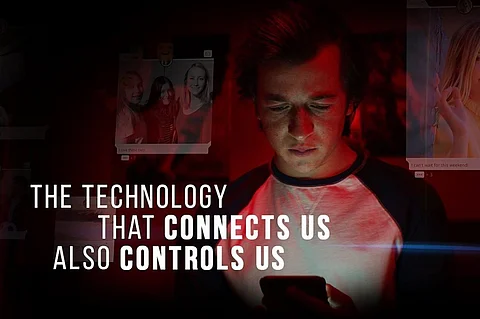

The Netflix docu-drama The Social Dilemma induces thought-provoking questions revolving around social media, a technology that leaves users wrapped around the virtual world so much that they have forgotten what its implications could be. Jeff Orlowski, the director, untangles answers bringing together the creative, brilliant minds behind popular social platforms.
The documentary features a group of creative heads, including Tristan Harris, former design ethicist at Google, Tim Kendal, former President at Pinterest, and Justin Rosenstein, a former engineer with Google and Facebook, and many more elaborating on the very ideas that they engineered. As Harris says, “Never before in history have 50 designers made decisions that would have an impact on two billion people.”
In the film, one of the interviewees says, “It’s easy today to lose sight of the fact that these tools have created some wonderful things in the world.” This cannot be denied, with social media connecting people across the world, but the ultimate aim of the documentary is debatable — is it meant to be informative or induce fear about social media platforms?
The fictional middle-class American family shown in the film goes through all the issues triggered by social media that we can observe around us on an everyday basis. The youngest daughter Isla, played by Sofia Hammons, is shown addicted to social media and has self-image issues. The middle son, Ben, played by Skyler Gisondo, is going through a heartbreak and is attracted to extremism through his addiction to Facebook posts.
Each of them is so engrossed in their phones that we are forced to introspect our actions. The reactions of each member without their cell phone make you wonder when you sat without your phone last. If this does not paint a picture of the present scenario, what does? The documentary highlights what we already know, but it still serves as a jolt. But even as the documentary provokes discussions on social media usage and choices, we ought to remember that we were drawn to watching the film in the first place because of the medium on which it was released. If it weren’t for the Netflix Recommendation Algorithms, would we have landed on the documentary?
One of the interviewees adds, “What I want people to know is that everything they’re doing online is being watched, is being tracked, is being measured. Every single action you take is carefully monitored and recorded.”
And it's not by accident. It's addiction by design as explained by one of the interviewees. We are addicted to notifications, the sound of the phone ringing, flattered by photo tagging, and boast of ‘likes’ on our social media pages. We are taken back to the middle-class family trying to have a ‘no cell phone lunch' and how hard it is for the characters. “When Facebook found that feature they just dialed the hell out of it,” says one of the interviewees. “Pull down, refresh, there’s always going to be a new thing at the top.” The interface operates, he says, “just like a slot machine in Vegas.”
Amidst the pandemic, confined to limited spaces, our heads and eyes are glued to social media even more. Anna Leme, an addiction expert at Stanford University, explains that these companies exploit the brain’s evolutionary need for interpersonal connections. The fictional story is rooted in teenagers and the use of smartphones, bringing out the psychology behind addiction to social media. Are algorithms designed to make things easier for us? Or are we confined to exploring what we are given? Have these algorithms controlled us for years without our knowledge?
We see Ben sitting isolating himself from his surroundings, scrolling, and watching YouTube recommended videos which make him obsess with one idea, one theory. The documentary does not just highlight past events that took place due to such carefully designed algorithms, it also draws from the current coronavirus conspiracy theories that we see. The film also takes us through riots triggered by social media, like the violence that was created against the Rohingya to Russia’s interference in the 2016 elections and mental health issues like ‘Snapchat Dysmorphia.’
The documentary not only teaches us to introspect our decisions and choices but also makes us aware of the circles and patterns in which we're trapped. The advice is given by one of the interviewees — ‘follow people you hate, expose yourself to new things, don’t click on what's recommended for you, search things by yourself’ — marks an insightful end to the 90-minute documentary.